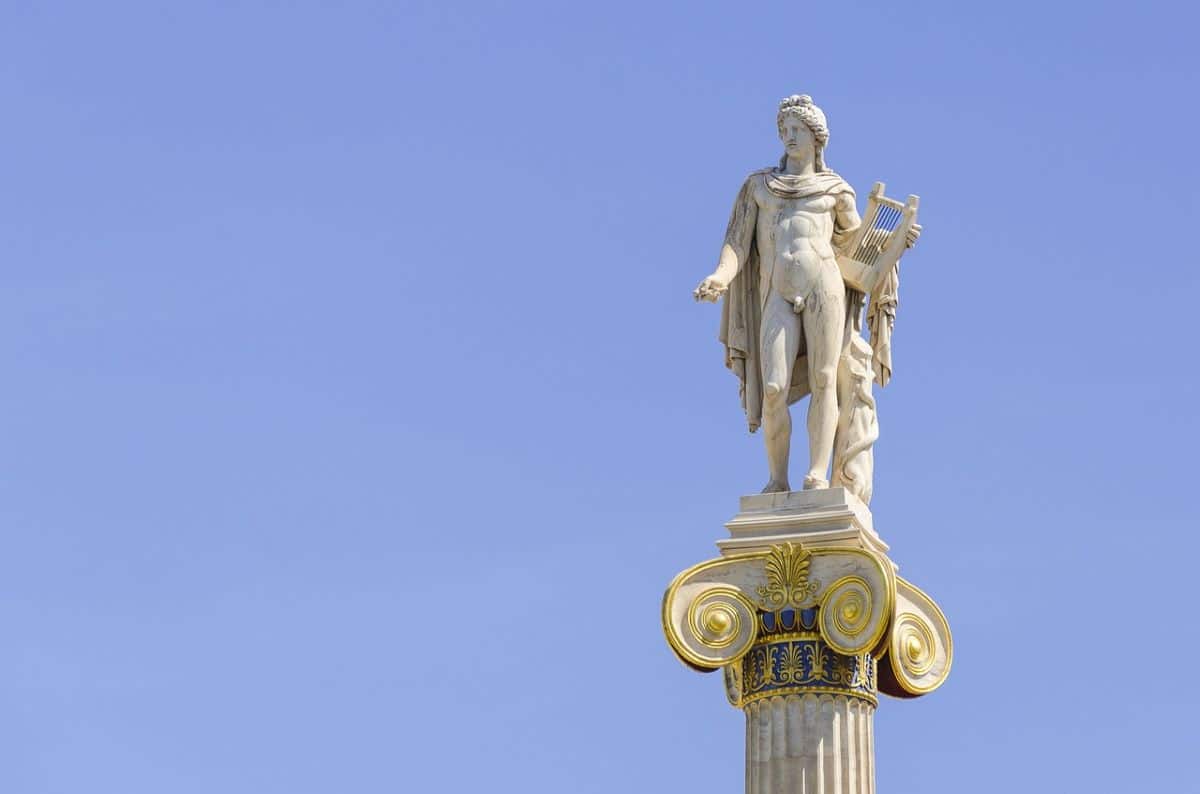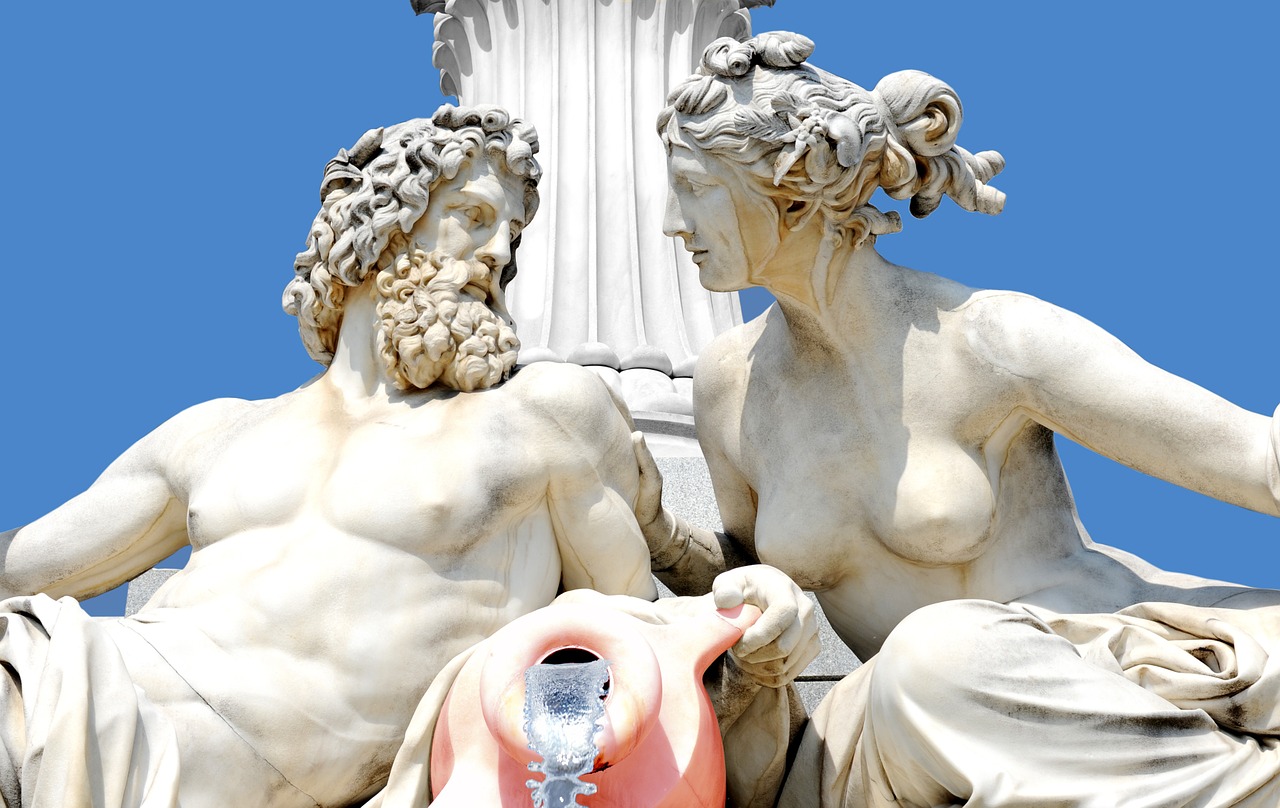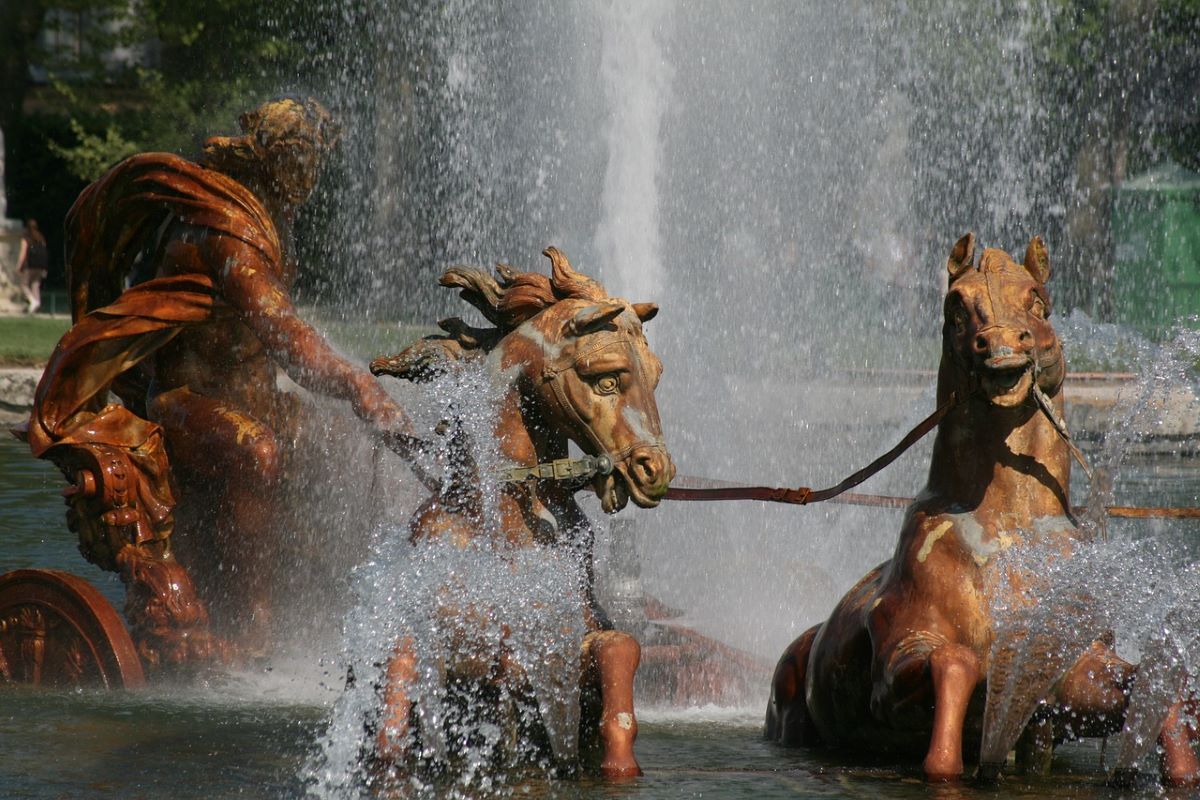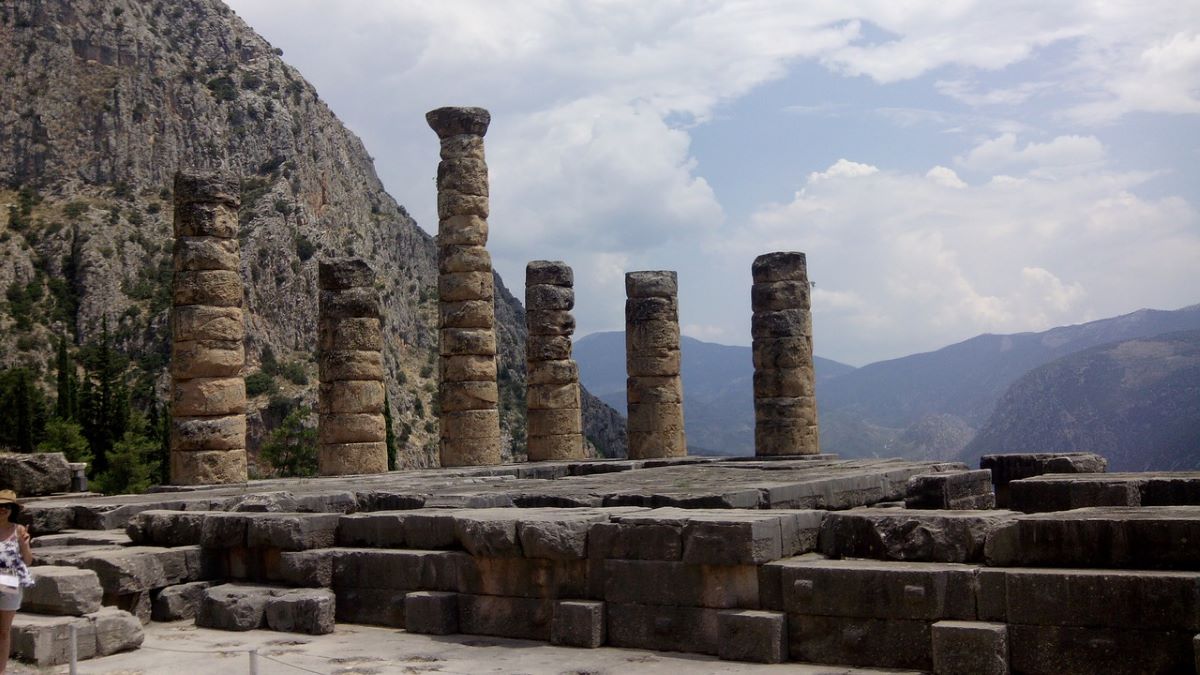
Image | Pixabay
One of the most important myths of the classical world was that of Apollo, which dealt with a warrior god who was an artist at the same time because he used to be accompanied by the muses and was a great defender of poetry and music. He is one of the most revered gods of ancient Greece and one of the most versatile.
If you are passionate about Greek mythology, you cannot miss the following post where we will inquire about the figure of Phoebus (how the Romans knew this deity), the importance of the Apollo myth, his origins, his career and his family, among other issues.
Who was Apollo?
According to Greek mythology, Apollo was the son of Zeus, the most powerful god of Olympus, and Leto, daughter of a titan who was worshiped as goddess of night and daylight alternately.
Zeus was initially interested in Asteria, who was Leto's sister, and tried to take her by force. However, she managed to escape turned into a quail but as this divinity continued to harass her, she finally threw herself into the sea and transformed into the island of Ortigia.
Not achieving his goal, Zeus then set his eyes on Leto who did reciprocate and from that relationship became pregnant with Apollo and his twin Artemis. However, the legitimate wife of Zeus, Hera, upon learning of her husband's adventure, began a terrible persecution against Leto to the point that she sought the help of her daughter Eileithyia, goddess of births, to prevent the birth of the titanid.

Image | Pixabay
It is for this reason that according to mythology, Leto was in horrible labor pains for nine days but thanks to the intervention of some gods who took pity on Leto, the birth of Artemis was allowed and she quickly became an adult for her mother. mother with the delivery of her brother Apollo. And so it happened. However, Artemis was so impressed by her mother's suffering that she decided to remain a virgin forever.
But the incident did not stop there. Not having achieved her goal, Hera again tried to get rid of Leto and his children by sending a python to kill them. Again, the gods took pity on Leto's fate and made Apollo grow in just four days to kill the monster with a thousand arrows.
Since the serpent was a divine animal, Apollo had to perform a penance for having killed it and where the python fell down, the Oracle of Delphi was erected. The son of Zeus became the patron of this place, to later whisper the predictions in the ears of the fortune tellers or pythias.
But the enmity of Hera and Leto did not end here but the myth of Apollo relates that both Artemis and he had to remain the protectors of their mother forever, as Hera never stopped tormenting her. For example, according to Greek mythology, the twins killed the 14 sons of Níobe, who made fun of the hapless titan, and the giant Titius, who wanted to force her.
How is Apollo represented?

Image | Pixabay
He was feared by the other gods and only his parents could contain him. He is represented as a handsome, beardless young man whose head is adorned with a laurel wreath and in whose hands he holds the zither or lyre that Hermes gave him. by way of apology for stealing part of Apollo's cattle. When he began to play the instrument, the son of Zeus was amazed at being a great admirer of music and they became great friends.
Apollo is also represented riding the golden chariot of the Sun that four magnificent horses were pulling to cross the sky. For this reason, he is also considered the god of light, Helios being the god of the Sun. However, in some historical periods both gods are identified in one, Apollo.
What are the gifts of the god Apollo?
- Apollo is usually described as the god of the arts, music, and poetry.
- Also sports, the bow and arrows.
- He is the god of sudden death, disease and plagues but also the god of healing and protection against evil forces.
- Apollo is identified with the light of truth, reason, perfection and harmony.
- He is the protector of shepherds and flocks, sailors and archers.
Apollo and clairvoyance
According to the myth of Apollo, this god had the power to transmit the gift of clairvoyance to others and this was the case with Cassandra, his priestess and daughter of Priam King of Troy, to whom he gave the gift of prophecy in exchange for a carnal encounter. However, when she acceded to this faculty, the young woman rejected the love of the god and he, feeling jilted, cursed her, causing no one ever to believe her predictions.
So when Cassandra wanted to warn of the fall of Troy, her forecasts were not taken seriously and the city was destroyed.
Apollo and the oracles

Image | Pixabay
According to classical mythology, Apollo also had divinatory gifts, revealing to humans the dictates of destiny. and his oracle at Delphi (where he killed the snake Python) was very important to all of Greece. The Oracle of Delphi was in a religious center at the foot of Mount Parnassus and the Greeks went to the temple of the god Apollo to learn about his future from the mouth of the Pythia, a priestess who communicated directly with this deity.
Apollo and the Trojan War
The myth of Apollo tells that Poseidon, the god of the seas, sent him to build the walls around the city of Troy to protect it from enemies. When the king of Troy did not want to pay the favor of the gods, Apollo took revenge by sending a deadly plague to the city.
Later, Apollo intervened in the Trojan War despite the fact that at first Zeus had asked the gods for neutrality in the conflict. However, they ended up participating in it. For example, Apollo and Aphrodite convinced Ares to fight on the Trojan side since two of Apollo's sons, Hector and Troilus, were part of the Trojan side.
In addition, Apollo helped Paris kill Achilles, being he who directed the arrow of the Trojan prince to the only weak point of the Greek hero: his heel. He also saved Aeneas from death at the hands of Diomedes.
Apollo's family
Apollo had many, many partners and children. Being a god of beauty he had both male and female lovers.
Her male lovers were:
- Hyacinth
- cyparisus
On the other hand, he had many female partners with whom he had offspring.
- With the Muse Talía he had the Coribantes
- With Dríope to Anfiso
- With Creusa he fathered Ion
- With Deyone he had Miletus
- With Coronis to Asclepius
- With the nymph Cyrene begat Areisteo
- With Ftía she conceived Doro
- With Qione he had Filamón
- With Psámate he begot Lino